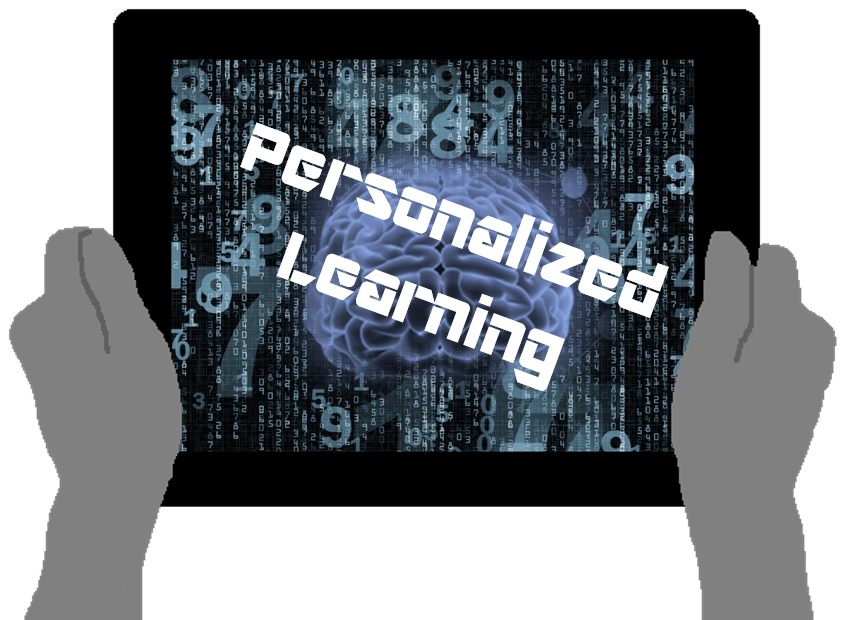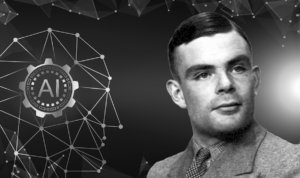In the developed world (and many parts of the developing world), technology is affecting almost every area of daily life. Yet there is much more it could be doing in one of the most important areas of our lives — education. “The rise of smartphones has transformed the way students communicate and entertain themselves,” writes Casey Newton (@CaseyNewton). “But the classrooms they spend so much of their time in remain stubbornly resistant to transformation.”[1] Newton concedes curricula has changed over the years (no one talks about taking “shop” or “home economics” nowadays) and he admits he learned to type on an Apple IIe computer rather than an electric or manual typewriter. Nevertheless, he asserts, the basic classroom approach has remained fairly constant — “a single teacher delivering the same message to a group of about 30 students, regardless of their individual progress.” He continues:
“For most schools, the approach to teaching remains stubbornly one-size-fits-all. Bill Gates is working to change all that. Through the Bill and Melinda Gates Foundation, Microsoft’s co-founder and chairman has invested more than $240 million to date in a developing field known as ‘personalized learning.’ It’s a diffuse set of initiatives, led mostly by private companies, to develop software that creates individual lesson plans for students based on their performance, coaching them through trouble spots until they have mastered the subject at hand. Teachers still play a central role in the classroom, but they do less lecturing and more one-on-one coaching.”
One has to admit it’s absurd to think we have artificial intelligence-powered personal assistants to help us keep track of our appointments, store our shopping lists, provide us directions, and select the music we hear, but we don’t have similar personal assistants helping our children succeed in school. That could be about to change. Newton reports, “Last year Facebook announced a partnership with Summit Public Schools, in which the Gates Foundation is an investor, to create personalized learning software and make it freely available.” Kristine Walker adds, “Virtual reality and artificial intelligence (AI) are becoming powerful tools needed to revolutionize education. Experts suggest the use of technology, with the integration of the ever-evolving cyber tools, will unify education and research environment and network.”[2] Both Newton and Walker discuss remarks Gates made at the ASU GSV Summit held in April 2016. Newton reports, “[Gates] laid out the foundation’s vision for accelerating the adoption of personalized learning around the world.” He continues:
“Gates asked investors to take a longer view in education than other fields, because of epic school district purchasing cycles. He asked school districts to speed up those cycles by using more pilot programs, and by supporting data standards that make it easy to compare the efficacy of different products. And Gates told entrepreneurs to invest in research around the efficacy of their products, producing data that will encourage other schools to adopt personalized approaches.”
Some people might object to the notion of experimenting with our children’s education (i.e., “using more pilot programs”); but, I agree with Gates that we need to learn what works and what doesn’t. I don’t worry too much about students involved in such pilot projects because the programs are designed to assess student performance. Students who appear to fall behind when participating in a pilot program are likely to receive more attention following the conclusion of the program than they would have received in a normal classroom setting. On the other hand, if the pilot program is successful, participating students are actually better off than had they remained in the traditional classroom. In an interview with Newton, Gates remarked, “The term ‘personalized learning’ doesn’t have an exact definition. In general, the idea is that people progress at a different rate. If you’re ahead of what’s being taught in the class, that’s not good, you get bored. If you’re behind, then they’re using terms and concepts that create a general impression of ‘Hey, I’m not good at this.’ And science and math in particular — if they’re talking about something you haven’t had the explanation on, you just really give up in that area. And there is no way that you are brought back into it.” Imagine a personal AI assistant that encourages and assists a child throughout his or her educational journey. Discouragement would be much less of an obstacle to a child’s success. One of the reasons I, along with a few colleagues, founded The Project for STEM Competitiveness was to help keep children both enthralled and engaged in subjects that have traditionally been hotspots of discouragement.
Keeping students engaged in difficult subjects by demonstrating how they can be used to solve problems is also one of the reasons my company has sponsored a summer intern program. As a cognitive computing firm, we are able to expose students to a high tech world that involves artificial intelligence. But small summer programs don’t provide enough exposure to enough students. Staff writers at OnlineUniversities.com suggest ten ways artificial intelligence can reinvent education.[3] They are:
1. Artificial intelligence can automate basic activities in education, like grading.
2. Educational software can be adapted to student needs.
3. It can point out places where courses need to improve.
4. Students could get additional support from AI tutors.
5. AI-driven programs can give students and educators helpful feedback.
6. It is altering how we find and interact with information.
7. It could change the role of teachers.
8. AI can make trial-and-error learning less intimidating.
9. Data powered by AI can change how schools find, teach, and support students.
10. AI may change where students learn, who teaches them, and how they acquire basic skills.
It doesn’t take much imagination to see how the items on that list can support “personalized learning.” As the article notes, “From kindergarten to graduate school, one of the key ways artificial intelligence will impact education is through the application of greater levels of individualized learning. Some of this is already happening through growing numbers of adaptive learning programs, games, and software. These systems respond to the needs of the student, putting greater emphasis on certain topics, repeating things that students haven’t mastered, and generally helping students to work at their own pace, whatever that may be. This kind of custom tailored education could be a machine-assisted solution to helping students at different levels work together in one classroom, with teachers facilitating the learning and offering help and support when needed. Adaptive learning has already had a huge impact on education across the nation (especially through programs like Khan Academy), and as AI advances in the coming decades adaptive programs like these will likely only improve and expand.” Gates is fairly sanguine that change is coming. He told Newton, “Eventually the schools of education will expose people to these new learning models as they get really pervasive. So you’ll come in ready to go with these things. There may be a generation of teachers that doesn’t adopt these things. But certainly the younger teachers coming in, they’ve chosen to be in education, and they know this is part of it.” Let’s hope he’s right.
Footnotes
[1] Casey Newton, “Can AI fix education? We asked Bill Gates,” The Verge, 25 April 2016.
[2] Kristine Walker, “Artificial Intelligence: Bill Gates Shares How ‘Personalized Learning’ Can Revolutionize Education,” Parent Herald, 26 April 2016.
[3] Staff Writers, “10 Ways Artificial Intelligence Can Reinvent Education,” OnlineUniversities.com, 30 October 2012.





